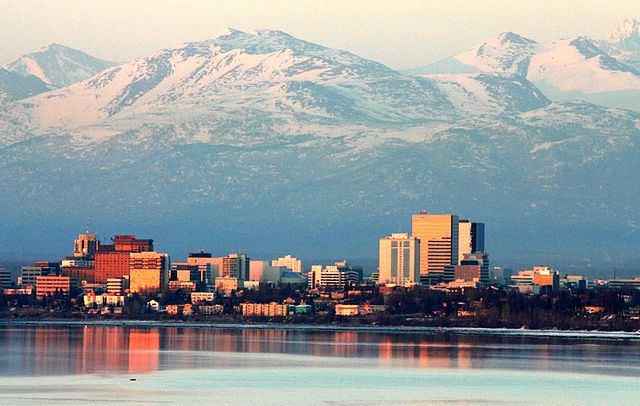
ANCHORAGE, Alaska — Last week’s magnitude 7.0 earthquake near Anchorage caused multiple problems at the sprawling Joint Base Elmendorf-Richardson, including damage to steel frameworks, ceilings, and sprinkler and heating systems, military officials said Friday.
But as with the rest of the earthquake zone, there were no deaths, serious injuries or widespread catastrophic damage.
In fact, Air Force Lt. Col. Jacob Leck, who is originally from Idaho, expected far worse in his first-ever earthquake, he said Friday during a news briefing on the impact of the Nov. 30 quake that struck 7 miles (11 kilometres) north of Anchorage. Such was the force felt during the quake, which has been followed by thousands of aftershocks.
“I thought for sure that we had significant damage and that it was going to be a catastrophic loss of some facilities,” said Leck, commander of the 773D Civil Engineer Squadron and director of the base emergency operations centre. “And to this date, we have not found anything of the magnitude that I ever expected.”
The base, home to a squadron of F-22 Raptor fighter jets, was quickly ready to receive aircraft. Three C-130s landed within an hour after the quake, according to officials.
Damages at the base are still being assessed, with a subsurface assessment planned by an airfield pavement evaluation team heading to Alaska from Tyndall Air Force Base in California, officials said.
Base officials unveiled damage to a swimming pool room in a base fitness building during Friday’s briefing. Ceiling panels were still missing, and the floor near the empty pool was littered with debris. The building is among several that remain closed at the base.
The 123-square-mile (319-square kilometre) base, located on Anchorage’s north side, is home to about 1,000 buildings, plus another 3,200 housing units. Only one household was displaced, and that was because of a water outage.
None of the seven bridges on base was damaged.
The base has provided emotional support to those who need it, said Col. Michael Staples, commander of the 673D Civil Engineering Group. “The chaplain has been very busy,” he said.
The main earthquake damaged structures over a wide of the temblor’s impact zone area in Anchorage and beyond, disrupting power and cracking roads.
As of early Friday afternoon, there had been more than 3,100 aftershocks, including 15 with a magnitude of 4.5 and above, according to seismologist Natalia Ruppert with the Alaska Earthquake Center.
Anchorage police warned Friday that rockfalls were still occurring along a 6-mile stretch of the cliff-lined Seward Highway.